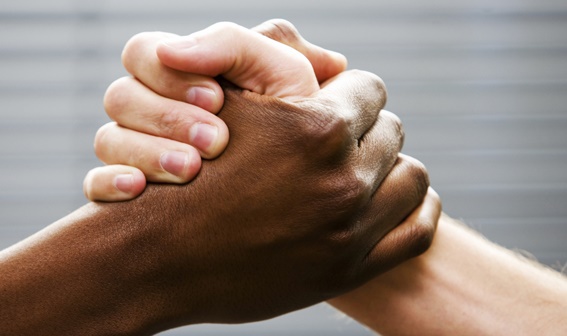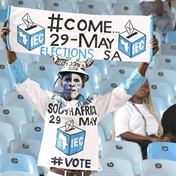
50 years ago, South Africa and the US faced similar challenges: institutionalised racism that denied and dispossessed people of their human rights on the basis of their skin colour.
Racial discrimination in South Africa was entrenched and policed by law, preached from pulpits – and the idea of white supremacy was a lived experience for blacks and whites.
The circumstances of black people in both countries were not that different: an apartheid slavery imposed by the white colonialist on a native population here; and in the US, a people unable to escape their enslaved past long after the abolition of slavery.
In 2016, we are no longer debating the equality of all races, so we have come a long way. Here in South Africa, with democracy and our Constitution that enshrines the values of the Freedom Charter, no one can be discriminated against on the basis of race. And so it is in the US.
But have we truly internalised that truth, or do we mouth words that mask long-held and deep-seated prejudices? Both our countries continue to deal with racism, despite laws that make discrimination illegal.
Prejudice stems from ignorance, a value system so deeply ingrained that it is unconscious.
We assume that an education is a guarantee of an illuminated, shackle-free mind – that the scales of ignorance and prejudice will fall away and be replaced by respect, a true acknowledgement that our blood runs red, that we all have a common ancestor and any surface difference is purely the result of evolution.
Right now in South Africa, we are talking about racism and seem shocked by the fact that it exists despite April 27 1994.
But in the context of freedom, we need to remember that, despite African-Americans securing the vote with the 15th Amendment of 1870, many Southern states prevented African-Americans from voting until 1965.
In 1994, when many South Africans voted for the first time, we made a number of naive assumptions – including that our leadership would rise to the challenge of being a government that could resist the snare of power, and that former president Nelson Mandela’s rainbow nation would erase the bloodstains of apartheid.
As an activist, it was hard to envisage freedom in my lifetime, but it came to pass with the unbanning of the ANC, the freeing of Mandela and the first democratic election in 1994.
Tonight, there are no special branch agents in the audience (I hope), none of us will be detained or imprisoned or placed under the infamous house arrest that Albert Luthuli was, when Robert Kennedy paid him a visit in 1966.
Yes, South Africa and the US have walked a long road and our freedoms were hard won.
So where to now?
To use Robert Kennedy’s words, “What is the battle to which we are all summoned?” Here today in 2016, it is to endorse his words – a battle for the future.
Bernie Sanders [US Democrat presidential contender], in a recent campaign speech, said:
“The issue of wealth and income inequality is the great moral issue of our time.It is the great economic issue of our time and the great political issue of our time. Truthfully, there is something profoundly wrong when the richest 80 people of the world own more wealth than the bottom half of the global population: 3.5 billion people.”
Even more astounding is that it is actually 62 individuals who earn more than the combined wealth of 3.5 billion people. Kennedy was a passionate advocate for global human rights and I wonder what he would have made of this world we live in today.
A profit- and bottom line-driven business ethic of “winner takes all” prevails, dividing our world between the very rich and the very poor – an unbridled global consumerist society creating environmental havoc, driven by avarice, blind to inhumanity, led by the morally bankrupt where the lives of ordinary men and women, whole countries even, are traded like the slaves of old.
The Cold War has been replaced by another, more insidious one waged across boardroom tables by multinationals, accountants and compromised governments, negotiated with criminal intent, fuelled by hatred and fostered by fear.
Our battle for the future is a battle for decency, for good to prevail. It is less about money and more about people, less about preserving borders and more about acknowledging our common humanity. In South Africa you would think that we would learn from our history – but history reveals that, for some reason, we never do.
Pather is director of the Wits Theatre. This is an extract from a speech delivered at the 50th anniversary commemorating Robert Kennedy’s visit to South Africa




 Publications
Publications
 Partners
Partners








